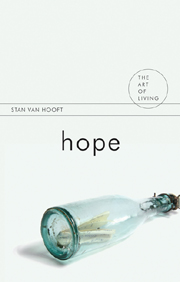1 - Defining hope
Summary
What do we mean by “hope”? Hope seems to be a psychological state that we experience as part of our inner, subjective lives. However, not all usages of the word designate a state of mind in this way. We sometimes say of someone that “he does not have a hope”. Suppose a goal kicker of average ability is taking a penalty kick against a team and a goalkeeper who are very skilled at football. As he is about to take his kick we might say of him that he has no hope of scoring the goal. We do not mean by this that he does not hope to score the goal. Indeed, we assume that he does hope to. But we are not referring to his psychological condition or to any mental states he might be in. We are referring to the objective fact that he has but a very slim chance of scoring a goal: so slim, in fact, that we think there is no likelihood at all that he will score a goal. We express this by saying that he has no hope of doing so. This statement is a description of the physical or factual likelihood of the outcome taking place. It is an assessment of the objective circumstances rather than of the internal psychological state of the footballer.
But the meaning that we are more interested in is when the word is being used to refer to the way someone feels or thinks about a situation. Let us explore this thoroughly.
- Type
- Chapter
- Information
- Hope , pp. 11 - 47Publisher: Acumen PublishingPrint publication year: 2011
- 1
- Cited by



